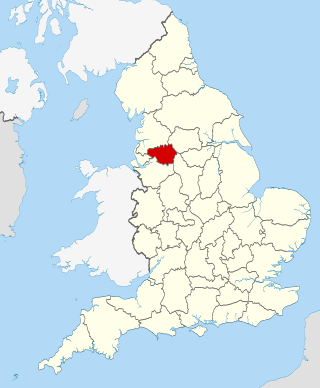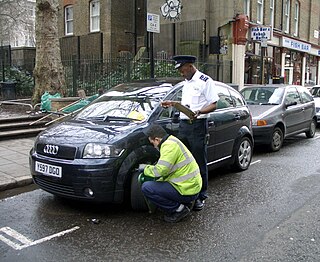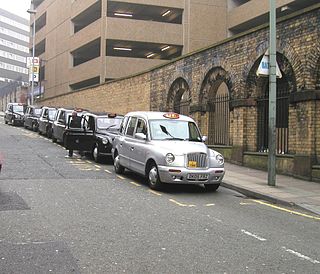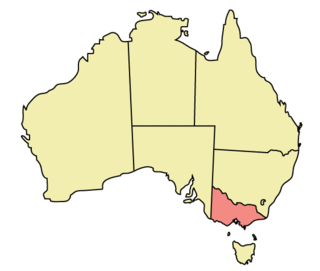Related Research Articles

The history of public transport authorities in London details the various organisations that have been responsible for the public transport network in and around London, England - including buses, coaches, trams, trolleybuses, Docklands Light Railway, and the London Underground.

The Regulation of Investigatory Powers Act 2000 (c.23) is an Act of the Parliament of the United Kingdom, regulating the powers of public bodies to carry out surveillance and investigation, and covering the interception of communications. It was introduced by the Tony Blair Labour government ostensibly to take account of technological change such as the growth of the Internet and strong encryption.

The Greater London Authority (GLA), colloquially known by the metonym "City Hall", is the devolved regional governance body of Greater London. It consists of two political branches: the executive Mayoralty and the 25-member London Assembly, which serves as a means of checks and balances on the former. Since May 2016, both branches have been under the control of the London Labour Party. The authority was established in 2000, following a local referendum, and derives most of its powers from the Greater London Authority Act 1999 and the Greater London Authority Act 2007.

The Greater London Council (GLC) was the top-tier local government administrative body for Greater London from 1965 to 1986. It replaced the earlier London County Council (LCC) which had covered a much smaller area. The GLC was dissolved in 1986 by the Local Government Act 1985 and its powers were devolved to the London boroughs and other entities. A new administrative body, known as the Greater London Authority (GLA), was established in 2000.

Law enforcement in the United Kingdom is organised separately in each of the legal systems of the United Kingdom: England and Wales, Northern Ireland and Scotland. Most law enforcement is carried out by police officers serving in regional police services within one of those jurisdictions. These regional services are complemented by UK-wide agencies, such as the National Crime Agency and the national specialist units of certain territorial police forces, such as the Specialist Operations directorate of the Metropolitan Police.

The Department for Transport (DfT) is a department of His Majesty's Government responsible for the English transport network and a limited number of transport matters in Scotland, Wales and Northern Ireland that have not been devolved. The department is run by the Secretary of State for Transport, currently Mark Harper.
In the United Kingdom, passenger transport executives (PTEs) are local government bodies which are responsible for public transport within large urban areas. They are accountable to combined authorities, which were created between 2011 and 2016 and took the role of integrated transport authorities (ITAs). The PTEs have joined together to form the Urban Transport Group, in which Transport for London and Strathclyde Partnership for Transport also participate.

A parking enforcement officer (PEO), traffic warden, parking inspector/parking officer, or civil enforcement officer is a member of a traffic control agency, local government, or police force who issues tickets for parking violations. The term parking attendant is sometimes considered a synonym but sometimes used to refer to the different profession of parking lot attendant.

Vehicle and Operator Services Agency (VOSA) was an executive agency granted trading fund status in the United Kingdom sponsored by the Department for Transport of the United Kingdom Government.

West Ham was a local government district in the extreme south west of Essex from 1886 to 1965, forming part of the built-up area of London, although outside the County of London. It was immediately north of the River Thames and east of the River Lea.

The London Government Act 1963 is an Act of the Parliament of the United Kingdom, which created Greater London and a new local government structure within it. The Act significantly reduced the number of local government districts in the area, resulting in local authorities responsible for larger areas and populations. The upper tier of local government was reformed to cover the whole of the Greater London area and with a more strategic role; and the split of functions between upper and lower tiers was recast. The Act classified the boroughs into inner and outer London groups. The City of London and its corporation were essentially unreformed by the legislation. Subsequent amendments to the Act have significantly amended the upper tier arrangements, with the Greater London Council abolished in 1986, and the Greater London Authority introduced in 2000. As of 2016, the London boroughs are more or less identical to those created in 1965, although with some enhanced powers over services such as waste management and education.

The Association of Greater Manchester Authorities (AGMA) is the local government association for Greater Manchester, a metropolitan county in North West England. It was established in 1986 as a voluntary organisation to represent the ten district councils of Greater Manchester after the Greater Manchester County Council was abolished. AGMA develops policy, lobbies government and others, and runs a range of services designed to make strategic and tangible advances in the standard of living across Greater Manchester. Its Policy and Research Unit is based in Wigan,

The London Passenger Transport Board was the organisation responsible for local public transport in London and its environs from 1933 to 1948. In common with all London transport authorities from 1933 to 2000, the public name and brand was London Transport.

The Town and Country Planning Act 1990 is an act of the United Kingdom Parliament regulating the development of land in England and Wales. It is a central part of English land law in that it concerns town and country planning in the United Kingdom. Repealed in parts by the Planning and Compensation Act 1991, it is now also complemented by the Planning and Compulsory Purchase Act 2004.

Decriminalised parking enforcement (DPE) is the name given in the United Kingdom to the civil enforcement of car parking regulations, carried out by civil enforcement officers, operating on behalf of a local authority. The Road Traffic Act 1991 (c. 40) provided for the decriminalisation of parking-related contraventions committed within controlled parking zones (CPZ) administered by local councils across the UK. The CPZs under the control of the local councils are also referred to as yellow routes and they can be easily identified with yellow lines marked on the roads with relevant time plates. Councils employ parking attendants to enforce their CPZs directly.

Taxicabs are regulated throughout the United Kingdom, but the regulation of taxicabs in London is especially rigorous with regard to mechanical integrity and driver knowledge. An official report observed that: "Little however is known about the regulation by anyone outside the trade. The Public Carriage Office (PCO), which regulates and licenses taxis and private hire was transferred from the Metropolitan Police to become part of Transport for London in 2000." In 2015, there were around 298,000 licensed drivers in England, of which 164,000 were private hire licences, 62,000 were taxi licences and 72,000 were dual licences.
The Royal Commission on London Government, also known as the Ullswater Commission, was a Royal Commission which considered the case for amendments to the local government arrangements in the County of London and its environs. The commission was chaired by Viscount Ullswater, appointed in October 1921, and reported in 1923. The inquiry was described as an "unmitigated disaster" for proponents of reformed local government in the capital, as the commission failed to reach a unanimous decision. The majority report recommending virtually no change was signed by four commissioners, one of whom added a memorandum of dissent. Two minority reports, each signed by two commissioners, reached differing conclusions. In the event, administrative reforms were not carried out until 1965 following another inquiry.

Illegality is one of the three broad headings of judicial review of administrative action in Singapore, the others being irrationality and procedural impropriety. To avoid acting illegally, an administrative body or public authority must correctly understand the law regulating its power to act and to make decisions, and give effect to it.

The Accident Towing Services Act 2007 is a law enacted by the Parliament of the State of Victoria, Australia. The Act is the prime statute regulating the vehicle towing industry which provides towing and recovery services for light and heavy road vehicles across Victoria. It is predominately founded on safety and consumer protection sentiments. The Act continued economic controls over the industry and contains occupational regulation characteristics. The style of the underlying regulatory scheme varies in parts and represents a blend which is prescriptive in some parts and performance and process-based in others.
The Traffic Commissioners for Great Britain are responsible for the licensing and regulation of the operators of heavy goods vehicles, buses and coaches, and the registration of local bus services in Great Britain.